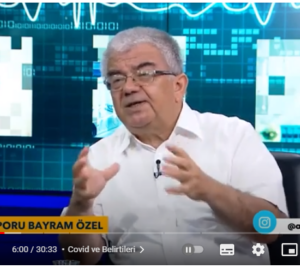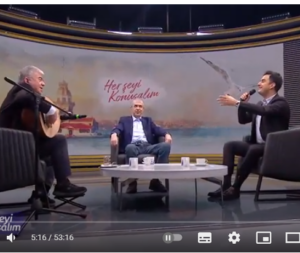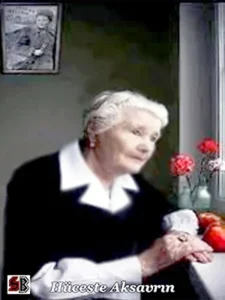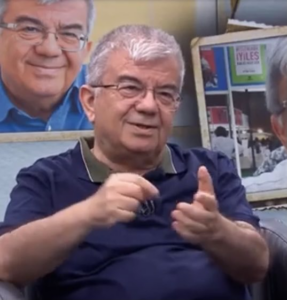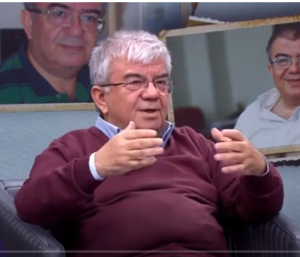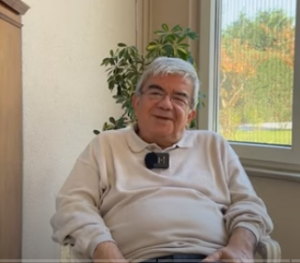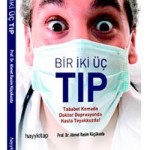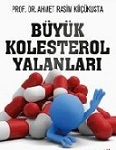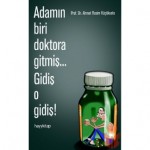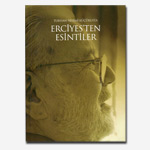COVID-19, YENİ BİR İNSANLIK KRİZİ VE EDEBİYAT

TOBB ETÜ İngiliz Dili ve Edebiyatı Bölümü öğretim üyesi Dr. Mustafa Bal ve İstanbul Medeniyet Üniversitesi Tıp Fakültesi Enfeksiyon Bölümü’nde görevli Doç. Dr. Ferhat Arslan’ın ortak kaleme aldığı “From the Covid-19 to Sterile Humanity: An Absurd Drama” başlıklı yazı e-letter olarak dünyanın en saygın dergilerinden biri olan Science’da 17 Mayıs 2020 tarihinde yayınlandı.
Yazı, tüm dünyanın gündemini kısa sürede değiştiren ve 21.yüzyıl insanını bir ölüm-kalım sınavına tabi tutan Covid-19 salgınına edebiyat ve tıp ekseninde yeni bir bakış açısı getirdi.
Çin’in Wuhan kentinden tüm dünyaya yayılan Covid-19 salgını, salgın esnasında Avrupa sınırında bekletilen mültecilerin yaşadığı insani kriz, Avrupa’da yükselen yabancı düşmanlığı İkinci Dünya Savaşı sırasında yaşanan ve milyonlarca insanın ölümüyle sonuçlanan insani krizi hatırlatıyor.
Savaş süresince yaşanan insanlık dramı karşısında umutlarını yitiren bir grup oyun yazarı, Avrupalı beyaz adamın kurduğu ama dünya savaşlarıyla birlikte kendi elleriyle yerle bir ettiği Avrupa medeniyetine tepki olarak absürd dramayı geliştirdi. Samuel Beckett ve Edward Albee’nin absürd oyunlarında yansıttıkları şiddet, ayrımcılık, yabancılaşma ve duyarsızlaşma, Covid-19’un etkisiyle tırmanan ırkçılığın yol açtığı mülteci krizine farklı bir gözle bakmamızı sağlar mı?
Dr. Mustafa Bal ve Doç. Dr. Ferhat Arslan’ın yazısı, II. Dünya Savaşı’ndan sonra bir kez daha sınanan Avrupa’nın “insani” tutumunu sorgularken, bu önemli soruya da yanıt arıyor.
In this piece, we aim to put a spotlight on the strong correlation between the Covid-19 pandemic, a humanitarian crisis (refugees on the European borders) and dramatic expressions (three plays of the absurd drama) that once highlighted and addressed the issues of similar conditions of humanity. In more details, we aim to address the issue that world- wide spread pandemics, whose effects on human beings we wish to diminish by improving our epidemiological, biological, and clinical knowledge, have various reflections other than their presence in the ecological sphere, alongside with a critique of humanity in absurd dramatic terms as observed in Samuel Beckett’s Waiting for Godot, Endgame, and Edward Albee’s The Zoo Story. Finally, we call for a joint solution of these problems of humanity arms-in-arms, as the peoples of the whole world.
Title: From the Covid-19 to Sterile Humanity: An Absurd Drama
Authors and their Affiliations:
1. Assoc. Prof. Dr. Ferhat ARSLAN – Department of Infectious Diseases and Clinical Microbiology, İstanbul Medeniyet University Hospital, Istanbul, Turkey Orcid id: https://orcid.org/0000-0001-8554-7651
2. Assist. Prof. Dr. Mustafa BAL – Department of English Language and Literature, Faculty of Science and Letters, TOBB University of Economics and Technology, 06560, Ankara, Turkey
Orcid id: https://orcid.org/0000-0002-4839-1800
Conflict of interest:
There is no conflict of interest to disclose.
From the Covid-19 to Sterile Humanity: An Absurd Drama
Abstract
In this piece, we aim to put a spotlight on the strong correlation between the Covid-19 pandemic, a humanitarian crisis (refugees on the European borders) and dramatic expressions (three plays of the absurd drama) that once highlighted and addressed the issues of similar conditions of humanity. In more details, we aim to address the issue that world- wide spread pandemics, whose effects on human beings we wish to diminish by improving our epidemiological, biological, and clinical knowledge, have various reflections other than their presence in the ecological sphere, alongside with a critique of humanity in absurd dramatic terms as observed in Samuel Beckett’s Waiting for Godot, Endgame, and Edward Albee’s The Zoo Story. Finally, we call for a joint solution of these problems of humanity arms-in-arms, as the peoples of the whole world.
Key words: Covid-19, new corona virus, pandemic, absurd drama
The Covid-19 pandemic that started in December 2019 in the Wuhan region of China and its following day-to-day developments all around the world has become the most significant issue for the world health authorities (1). The decisions that governments have been taking in accordance with their local scientific committees/institutions, due to the impacts and effects of these situations on the world trade and political conjectures, are opening up ways to long-term and controversial discussions. The dynamic and successful precautions that Chinese national health authorities have taken since the outbreak of the pandemic and the surveillance system of the World Health Organization (WHO) have been so influential, and prognosticate promising methods and positive results for probable future pandemics. Keeping potential main and intermediate hosts under observation, determining and sharing genomic sequences, launching out pharmacological works for a vaccine without a moment to spare, and local and personal precautions have all been components of a great endeavor for the sake of humanity. A combination of cultural, geographical and genetic variables is what causes the direct and indirect contact of the natural reservoirs of the virus with the human beings. Turning a pandemic that can
easily be seen in any parts of the world to an issue of inhumane discussions, from the questioning of cultural elements to racist approaches, is the result of an ignorance, to say the least of it, about the vast and complex nature of the ecosystem.
Today, our country Turkey and Europe simultaneously face a virus-based pandemic and a plight of refugee groups of people. The interaction between human-beings and bats, rats, mink cats, etc., which are thought to be probable reservoirs of the Covid-19 pandemic – a zoonotic infection – have been going on for centuries. For instance, while biological sprays of the migratory birds cannot, of course, be seen as a means of bioterrorism, even ironically, that works for the preservation of the ecosystem, sometimes, they are known to be the cause of the death of millions of people, as in the case of the Spanish flu (2). In this paper, we aim to address the issue that world-wide spread pandemics, whose effects on human beings we wish to diminish by improving our epidemiological, biological, and clinical knowledge, have various reflections other than their presence in the ecological sphere, alongside with a critique of humanity in absurd dramatic terms as observed in Samuel Beckett’s Waiting for Godot, Endgame, and Edward Albee’s The Zoo Story.
A gathering of global and local anxieties added to a feeling of insecurity is an indication of the fact that pandemics are not merely medical procedures. Pandemics, in time, may evolve into stigmatization and xenophobia. The sources of stigmatization unfold as limited or manipulative information, hasty and stereotypical consideration, and biased fixed responses. Viewed from all these perspectives, it would not be wrong to claim that humanity, today, is going through a difficult phenomenological, ontological and biological test. Both the stigmatization committed against mostly non-white, Asian people as potential Covid-19 hosts and the attitudes shown and action taken on the borders, disregarding related international laws, against people who, due to harsh conditions of war, leave their home behind in order to be refugees in unfamiliar
lands signal an ontological crisis for humanity. Such a scene raises doubts and questions as to the ultimate ending of the European Renaissance and humanism as of 2020, which was once triggered by Pico Della Mirandola’s essay “On the Dignity of Man” (1486) – an essay that emphasized and elated humankind as a valuable being and considered by some as the manifesto of Renaissance (3). This situation, which occurs side by side with the Covid-19 threat, designates ontologically a more apocalyptic phenomenon since it is very likely that for the Covid-19, a cure will soon be found or it will lose its effect having taken lives, just like the black death (the great plague), or SARS or EBOLA. However, the wounds that will be opened as a result of shutting off the doors and leaving people to dead, who are still healthy and wish to save their lives by taking a boat with the hope of finding a shelter at a safe zone, and despite the plenty of sources that can be shared with them, will turn to a disease of humanity that will not heal for centuries, maybe even for good.
In the history of the world, a similar – but not of the same nature as the Covid-19 pandemic is more comprehensive and global in terms of its infectiousness to people regardless of their age, sex, race, complexion, genetic blueprint, economic situation, educational level and the like, thereby calling forth a more comprehensive and global sterility questioned in this piece – humanitarian crisis was experienced during the Second World War in Europe, resulting in the death of millions of people. Right after such most violent, bloody and painful experience of humanity, writers, who have the sharpest eyes and calmest minds for observing human beings, and European playwrights in our context, having lost their hopes about human beings and humanity, leaned towards the nihilistic philosophy and put forth a set of theatrical aesthetics known as the absurd drama, which put meaninglessness, Sisyphean futility, and linguistic irreferentiality at its center. Waiting for Godot (1953), written by one of the most well-known figures of the European absurd drama, the Irish Samuel Beckett, is one of the most representative
plays of the humanitarian crisis of the period (4). Although less popular and influential than Waiting for Godot, Endgame (1957) by the same playwright is based upon the same absurd philosophy (5). The play takes place in a claustrophobic one room setting, wherein we see the picture of the mushroom cloud of the atomic bomb explosion in Japan during the Second World War, hung on one of the walls. The two characters without legs, Nagg and Nell, who try to continue their lives inside ashbins, with repetitive speeches, and in constant need of feeding that grants them parasitic qualities, are allegories of the gradual death of humanity (6). This scene from Endgame is a vivid representation of today’s plight of the refugees and those who see them as parasites and force them to live in and around ashbins. In addition to these, The Zoo Story (1960) by the American playwright Edward Albee is another play that sheds lights to the recent happenings relating to the Covid-19 and the refugees around the world today (7). Edward Albee, compared to the European absurd dramatists, takes a different stance in his employment of the absurd on the stage. Rather than an utterly nihilistic perception of the universe, he seeks after a hope for reformation through a harsh criticism of the ills of the society. “His fundamental theme is the collapse of communality, the Other as threat. The overwhelming mood is elegiac. His subject is loss, desolation, spiritual depletion” (8). The Zoo Story reflects all these qualities of Albee’s playwriting. The play forms an analogy between the situation of the zoo animals that have been uprooted from their natural habitats and placed into separate cages, thereby being alienated to their natures, and the upper middle class Americans who, having had a house, a spouse, kids and a car, turn to be discriminatory of the other, and alienated because of their insistence on keeping their comfort zones. Albee criticizes such people as being exclusionist, apathetic, insensitive and soulless. In strong correlation with these, the exclusionist, apathetic, insensitive and soulless attitudes shown to people (especially of Asian descent) by seeing them as potential Covid-19 hosts and refugees as parasites is a restaging – in the real world – of the
problem of the caged human beings questioned in the play.
In conclusion, the Covid-19 pandemic and the refugee crisis that we face today are more complex cases beyond their biological and socio-political characteristics. Humanity needs to embrace coexistence in lieu of exclusion and must adopt joint solutions as a principle. Humanity has long consumed even nihilism and absurdism with its responses to many upsetting events throughout history. If the virus and refugee crises for which humanity has been trying to find cures for a while, is not cured well or not cured at all, they may evolve into a new trauma but this time a kind of alzheimer for humanity. In a world where we are wrestling with a virus pandemic and a refugee humanitarian crisis, we need to see that the only cure we can find to all these human-made problems is hidden again within ourselves as humans. It is all of us that creates problems in huge scales to which neither our national borders nor our personal preferences can reach, and it must be again all of us that has to find solutions by meeting on common grounds.
REFERENCES
1. Wang C, Horby PW, Hayden FG, Gao GF. 2020. “A novel coronavirus outbreak of global health concern.” Lancet, London. 15; 395, 470–3.
2. Spinney L. 2018. “The Spanish flu: an interdisciplinary problem.” Lancet, London, England 15, 2552.
3. Mirandola P. Della. 1998. “On the Dignity of Man.” Hackett. Publishing, Indianapolis, Cambridge.
4. Beckett, Samuel. 2006. Waiting for Godot: a tragicomedy in two acts. Faber and Faber, London.
5. Beckett S., 2012. Endgame. Faber & Faber, London.
6. Sollars M. Ed. and Contributor Mustafa Bal. 2011. Dictionary of Literary Characters. “Nagg,” p. 1399 and “Nell,” Facts on File, New York, p. 1490.
7. Albee, Edward. 1959. The Zoo Story, Samuel French, London.
8. Bigsby, C. W. E. 2004. Modern American Drama, Cambridge University Press, Cambridge.
